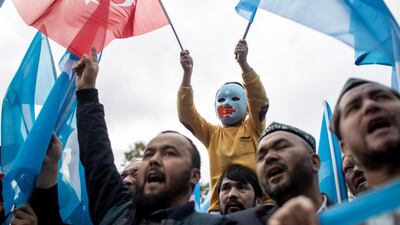Turkey has called on China to shutter its internment camps for Muslims, calling them a "great shame for humanity".
The Turkish foreign ministry released a statement that said it was "no longer a secret" that Beijing is holding more than a million Muslims, many of them Uighurs, in what a spokesman called "concentration camps".
Hami Aksoy said late on Saturday that Turkey's position had been shared with China at "all levels," opposing what he said was "systematic assimilation" in western China.
The Uighur Muslims seek their own state and many reside in the restive western region of Xinjiang. They have complained of discrimination, violations of their religious freedoms and a brutal crackdown by security forces.
After months of denying their existence, Chinese authorities under increasing outside pressure acknowledged the system of camps, terming them vocational training centers. They have provided little or no information on how many are interned within them and how long they are being held.
Turkey's response follows the death of Uighur poet and musician Abdurehim Heyit in custody.
"We've learned with great sorrow that dignified poet Abdurehim Heyit, who was sentenced to eight years in prison for his compositions, died in the second year of his imprisonment," Mr Aksoy said.
"This tragic incident has further strengthened the Turkish public's reaction to the serious human rights violations in Xinjiang Region".
Beijing faces growing international pressure over its so-called "de-radicalisation" programme in its far western province.
Ankara called on the international community and the UN secretary general to take action.
China says it protects the religion and culture of its ethnic minorities and that security measures in Xinjiang are needed to counter groups that incite violence there.
Last week, rights activists urged European and Muslim nations to take the lead in establishing a United Nations investigation into China's detention and "forced indoctrination" of up to one million Uighurs, who speak a Turkic-language, and other Muslims in the western province.
Turkish President Recep Tayyip Erdogan had once accused China of "genocide" but has since established closer diplomatic and economic relations with Beijing.

